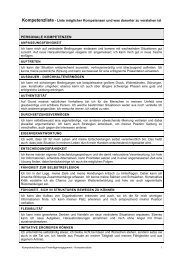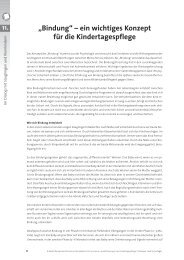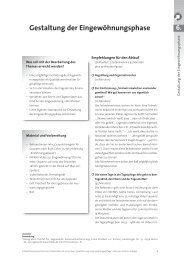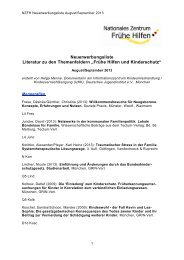download - Deutsches Jugendinstitut e.V.
download - Deutsches Jugendinstitut e.V.
download - Deutsches Jugendinstitut e.V.
Create successful ePaper yourself
Turn your PDF publications into a flip-book with our unique Google optimized e-Paper software.
Lithuania is by its own account oriented to Scandinavian countries and follows a socialdemocratic<br />
social security model with similarities to the German structure, while however<br />
currently implementing a more liberal-oriented policy.<br />
The current state welfare orientation cannot have a recognisable influence on concrete<br />
strategies and programmes for disadvantaged children and young persons due to the<br />
continuing substantial indeterminacy. The influence of the socialist state history is in visible<br />
to a much greater degree. It will remain to be seen in which direction the state welfare<br />
structure will develop in Eastern European countries and how this will influence the future<br />
development and implementation of social welfare programmes for disadvantaged children<br />
and young persons.<br />
The manner in which politically responsible actors perceive the problem complexes<br />
appears to exert a strong influence.<br />
Programmes for disadvantaged children and young persons in Western European<br />
countries primarily developed on the basis of strategies. In contrast, in Eastern Europe<br />
there is a tendency for ‘ad hoc’ reactions to individual problems with no overriding<br />
strategy. It is more a matter of short-term reaction than strategic action. In these countries<br />
it is also typical that most actions undertaken are directed at all young persons and accepted<br />
by the majority. The services offered by the various welfare institutions do not differentiate<br />
between those who are or are not socially disadvantaged; this does however not implicate<br />
that social differences are not considered in these services. In the category of leisure<br />
activities for example, financial support is available for children and young persons from<br />
disadvantaged families.<br />
The national strategies and programmes presented by these countries should be<br />
examined and compared among each other in a similar manner to processes existing in<br />
Western European countries which proceed in a more transversal and strategic manner.<br />
Here it is important to highlight specific factors and general conditions in Eastern Europe<br />
in order to achieve a legitimate evaluation of the programmes presented.<br />
Programmatic starting point<br />
In the above-mentioned Eastern European countries, individual specific problem areas<br />
served as the starting point for the development and implementation of the national<br />
programmes presented. In Hungary, activity within the informal economy has remained a<br />
significant factor of welfare production as in other post-Communist states (cf.<br />
Götting/Lessenich 1998: 302) which has led to specific social problems. Only a small<br />
proportion of the employable population is registered in official employment and social<br />
systems (grey and black market). This fact was the starting point for the implementation of<br />
the programme for the improvement of professional integration primarily targeted at welltrained<br />
young persons in extremely underdeveloped regions.<br />
In Poland, it is the rural areas which are particularly underdeveloped. Here a steep<br />
decrease in population can be observed, particularly within the age group between seven<br />
and 18. For these regions, a national programme was set up for the equalisation of<br />
educational opportunities of children and young persons, primarily offering activities within<br />
the area of out-of-school education.<br />
116

















